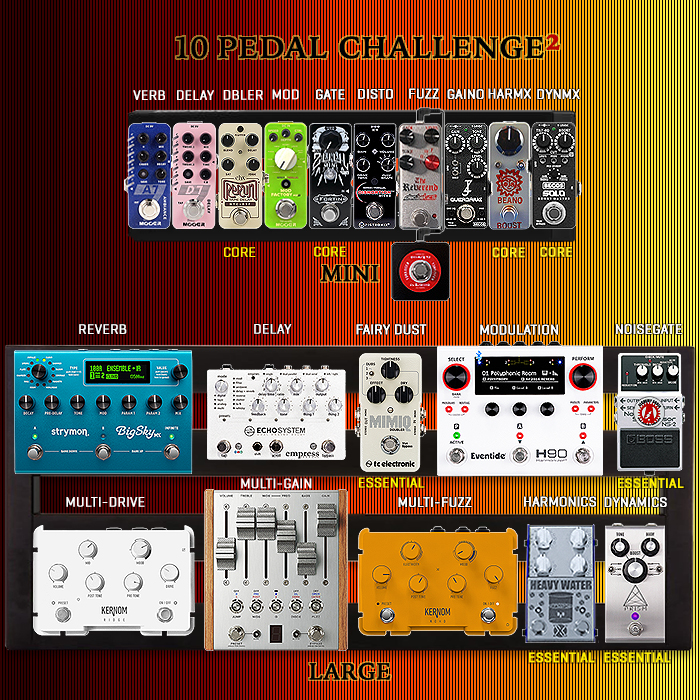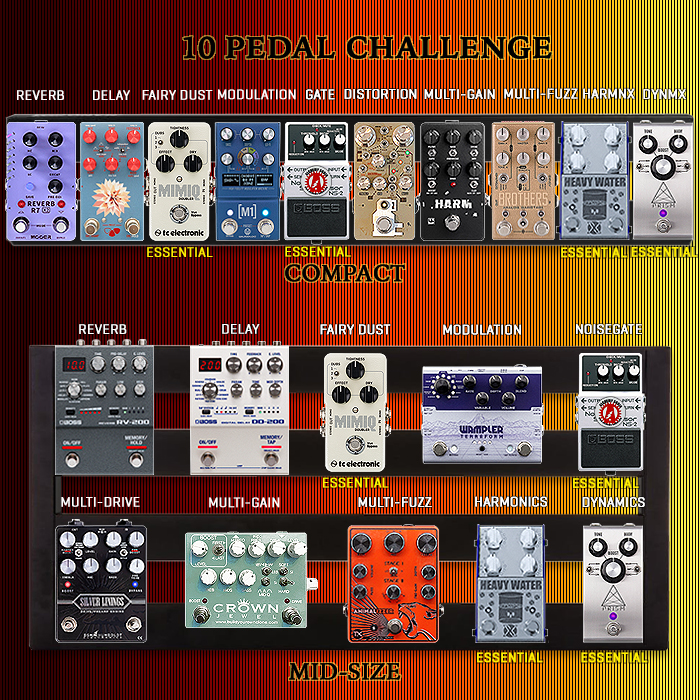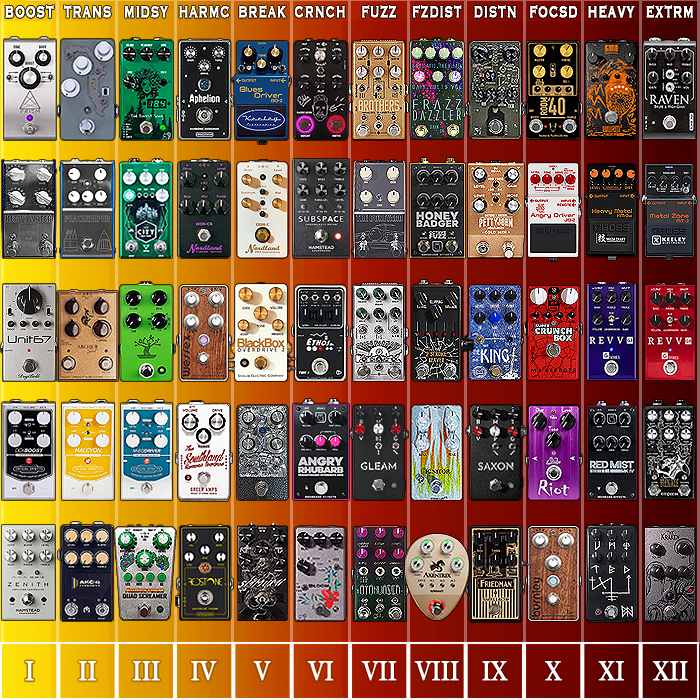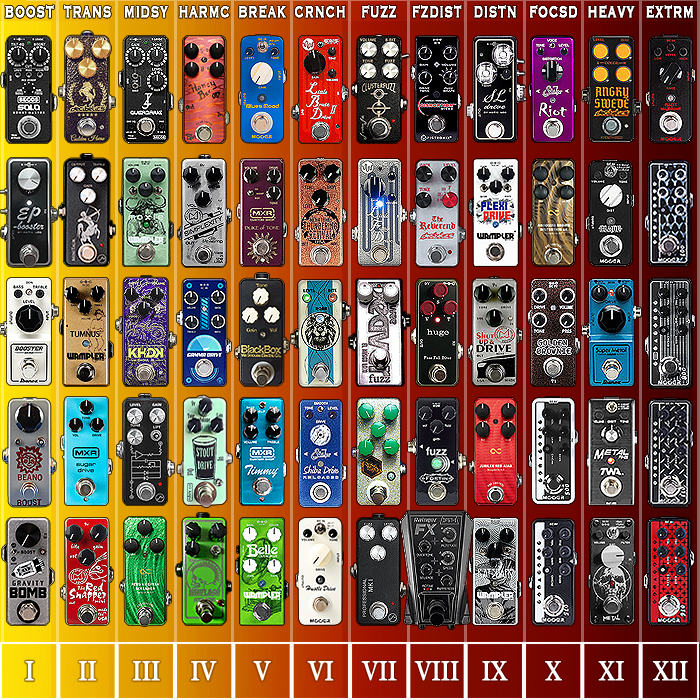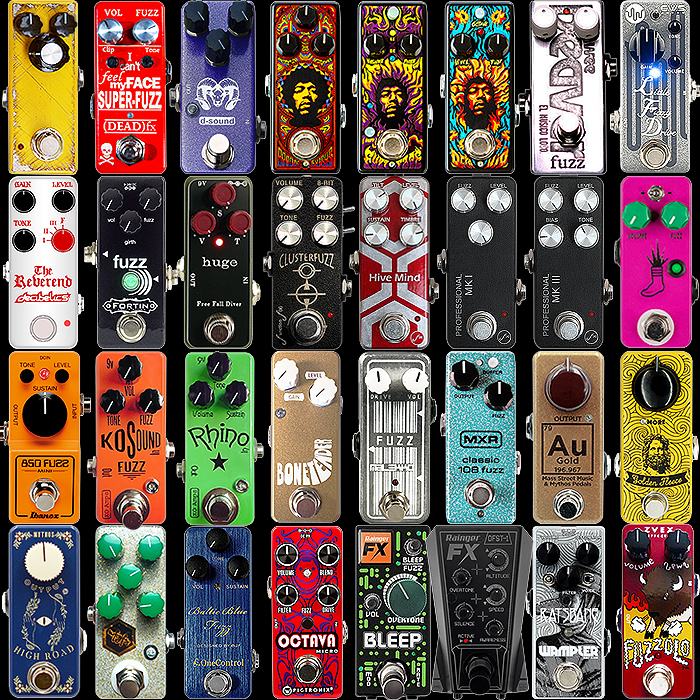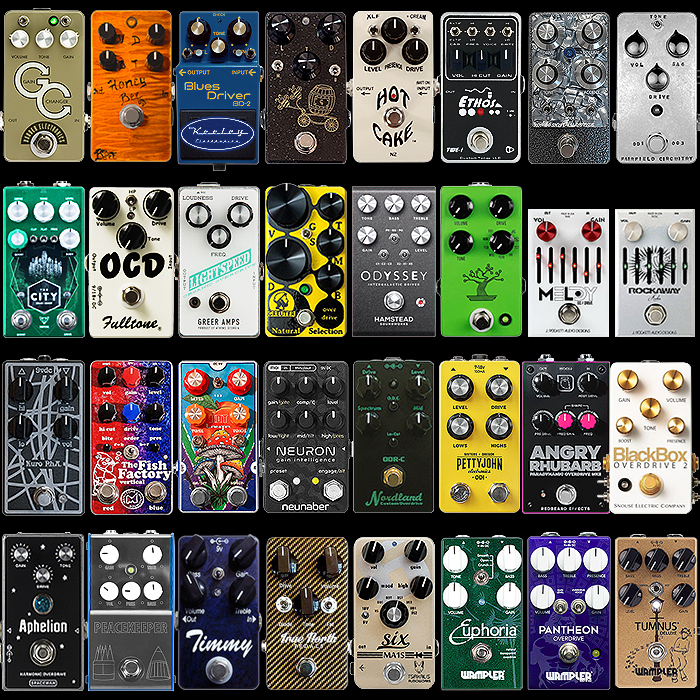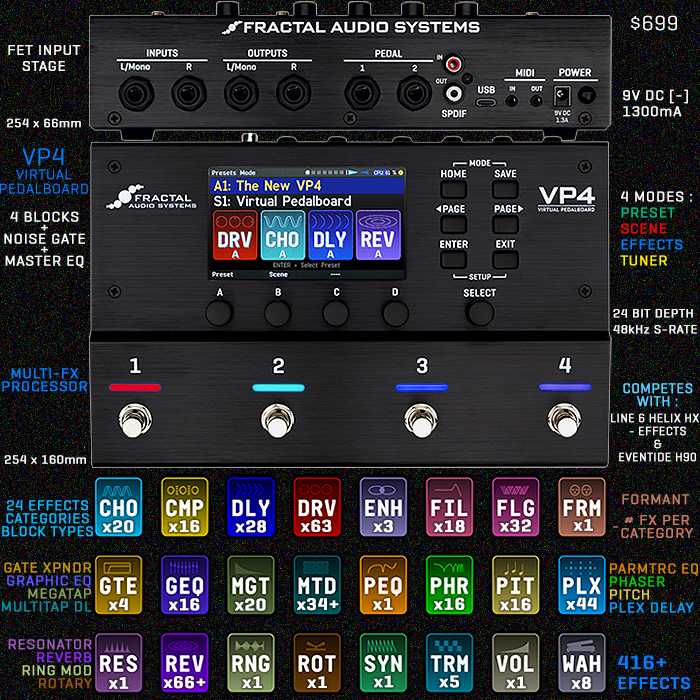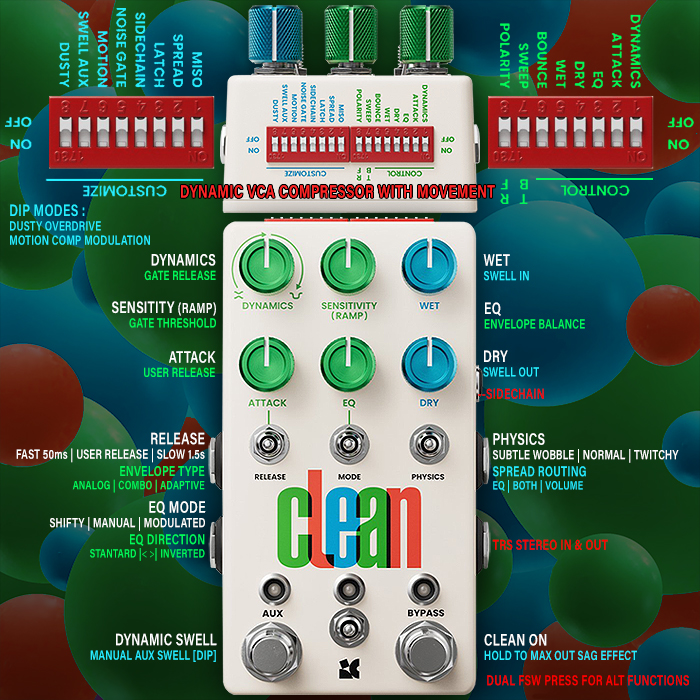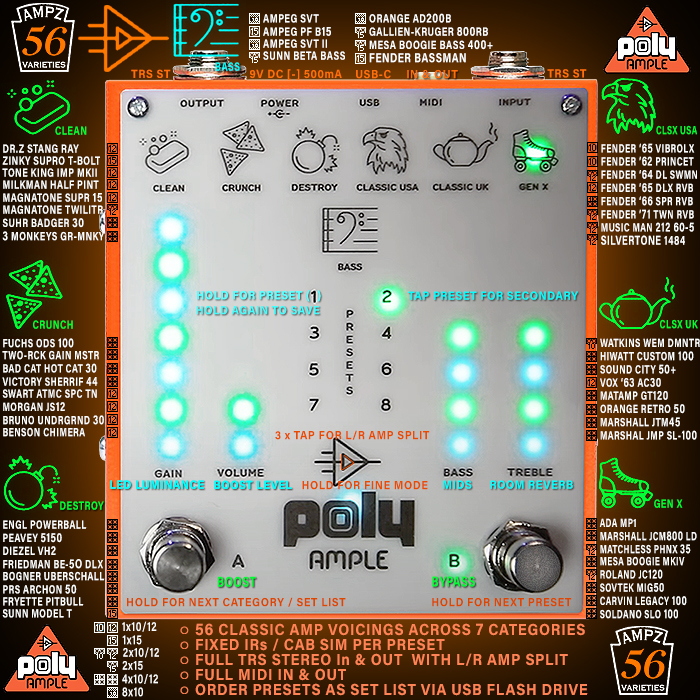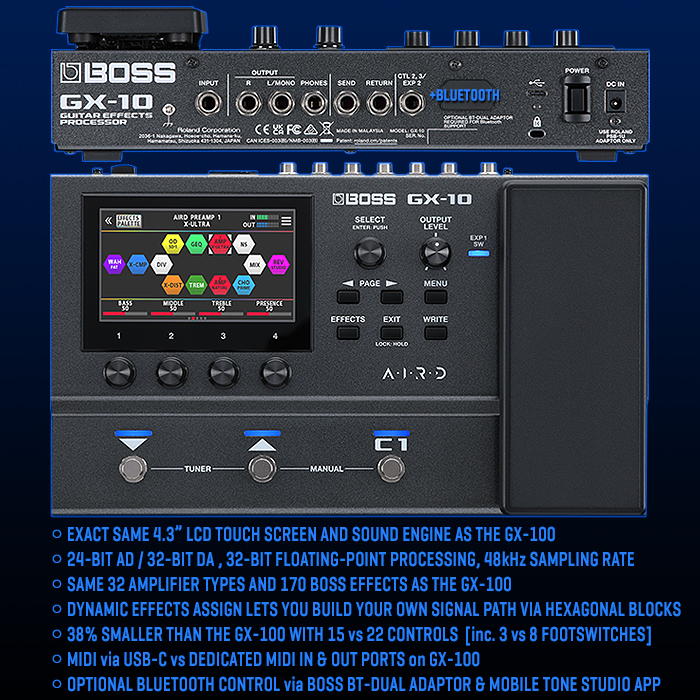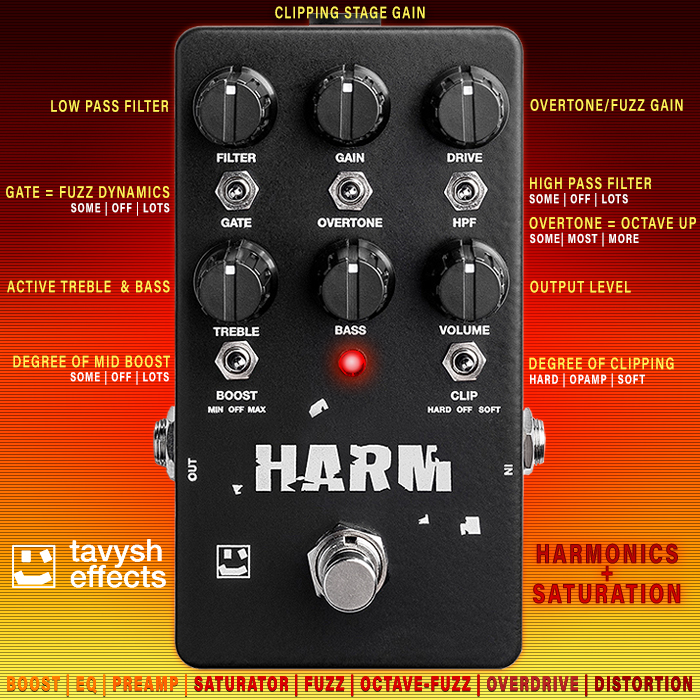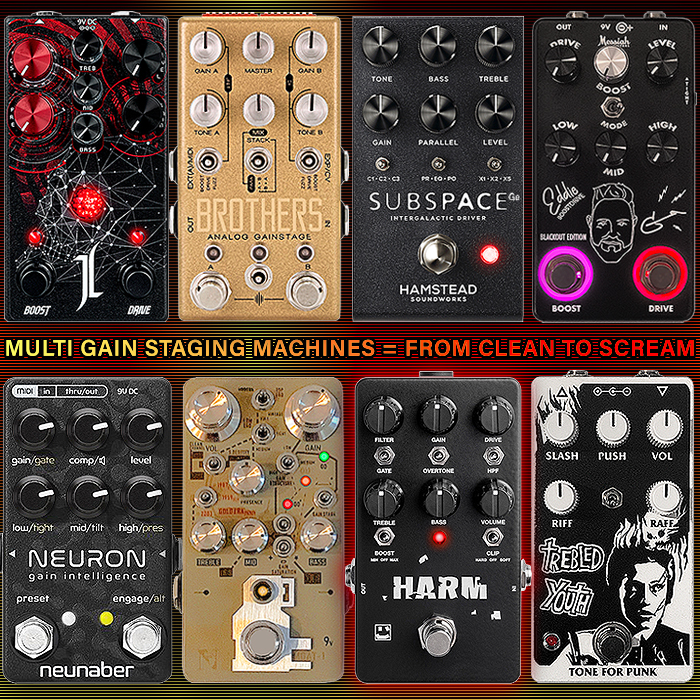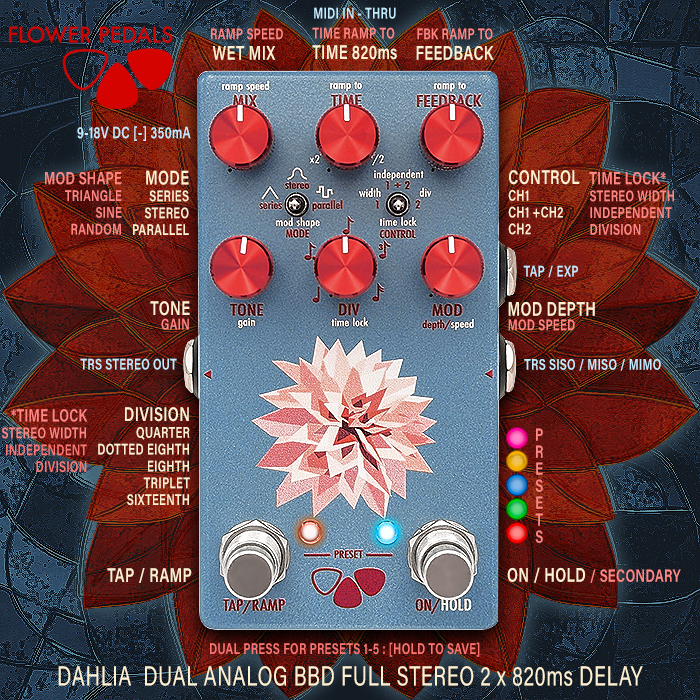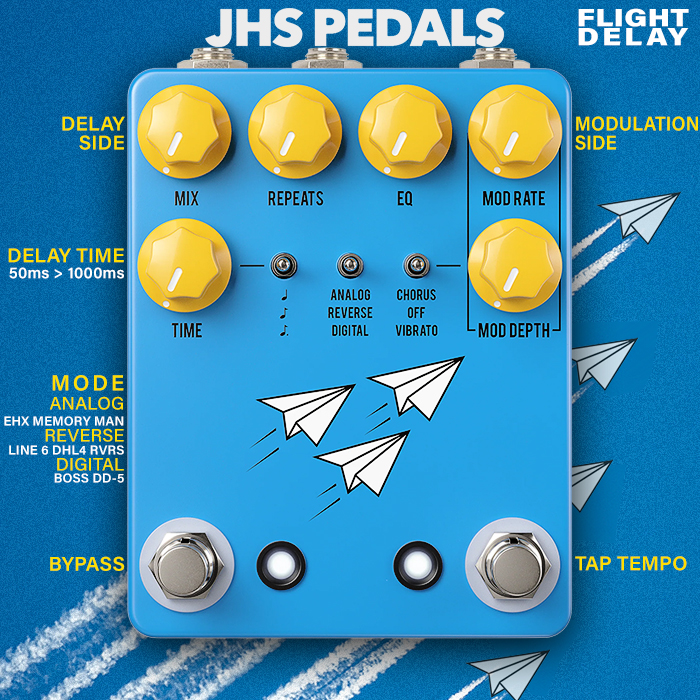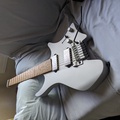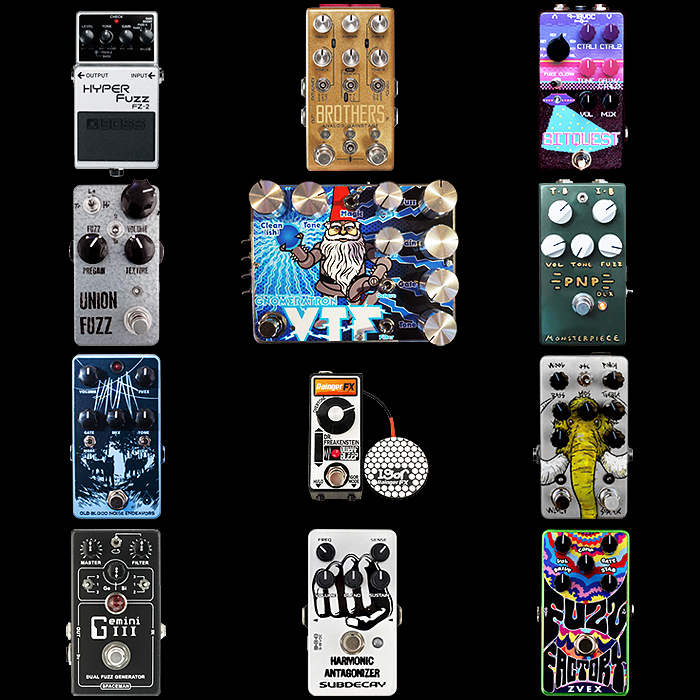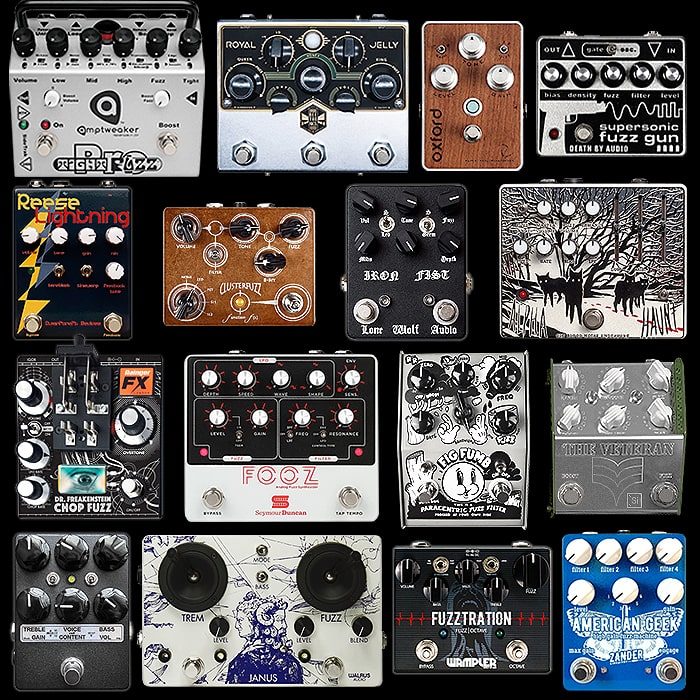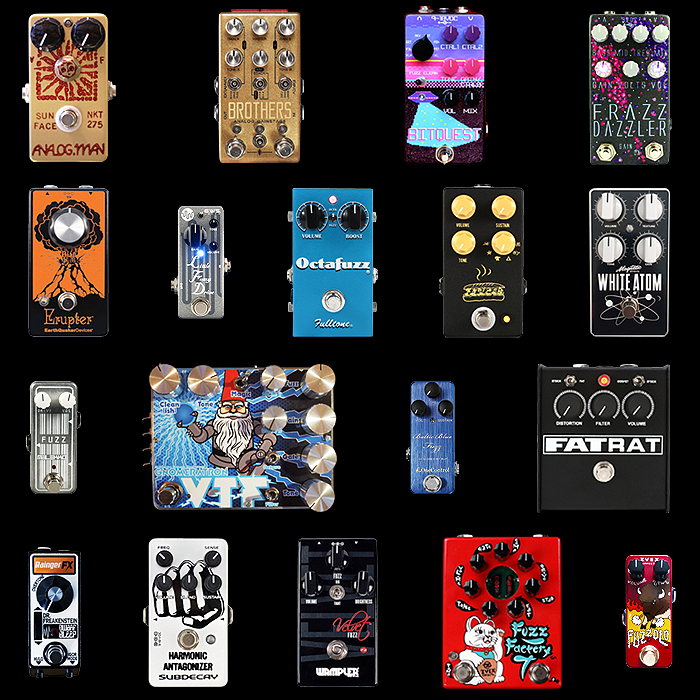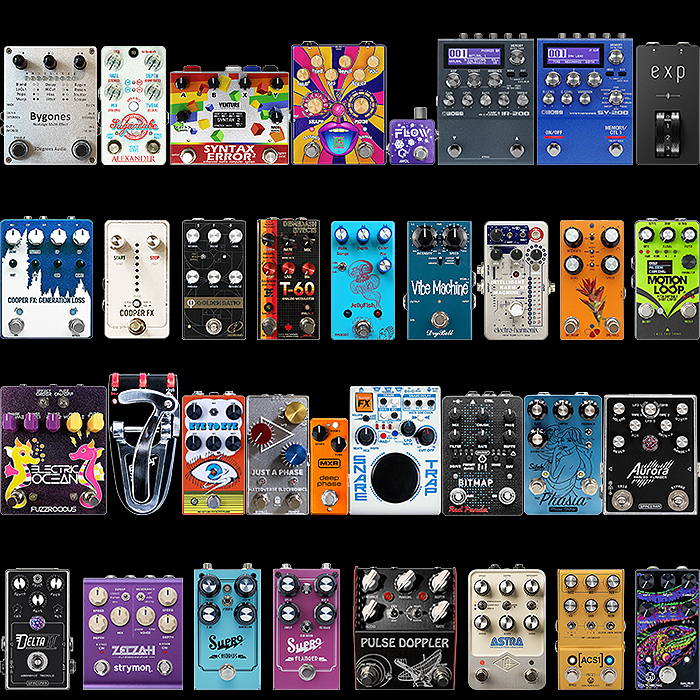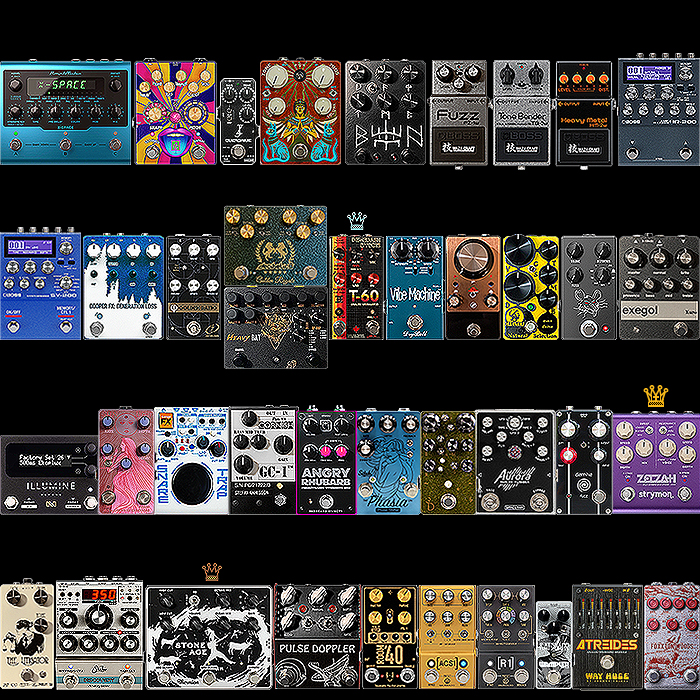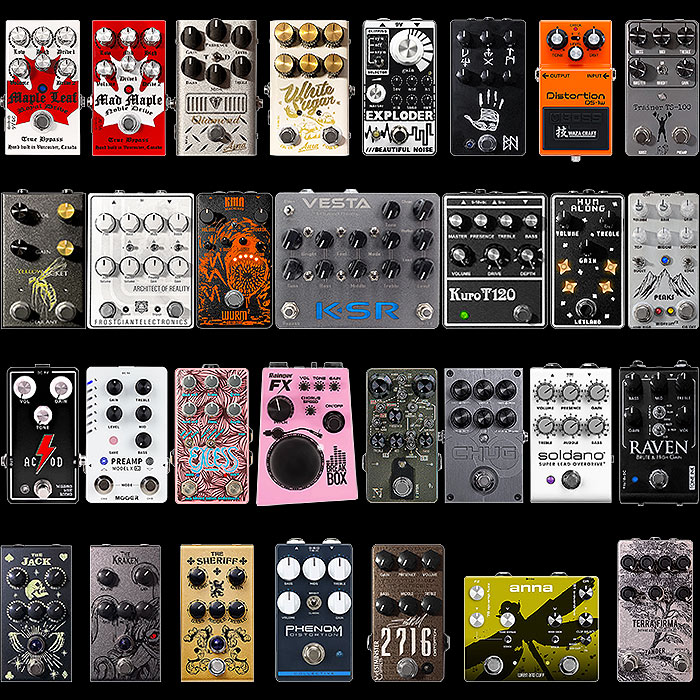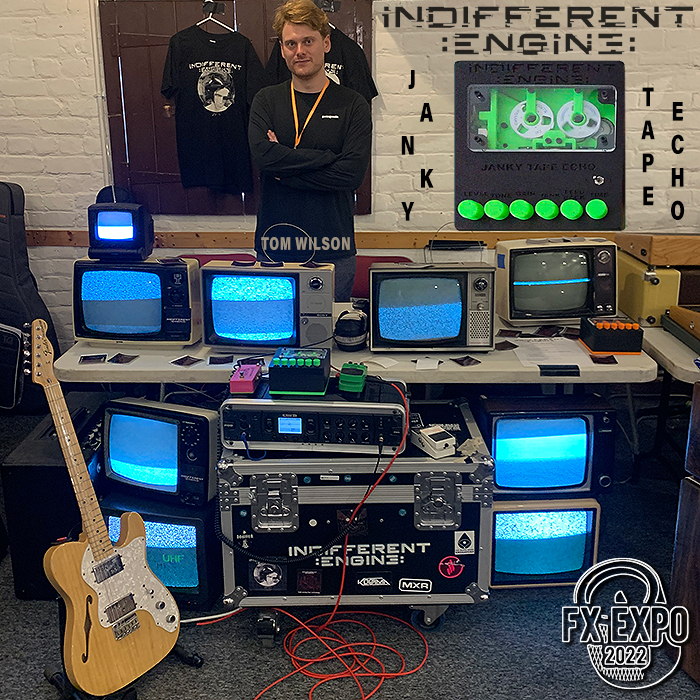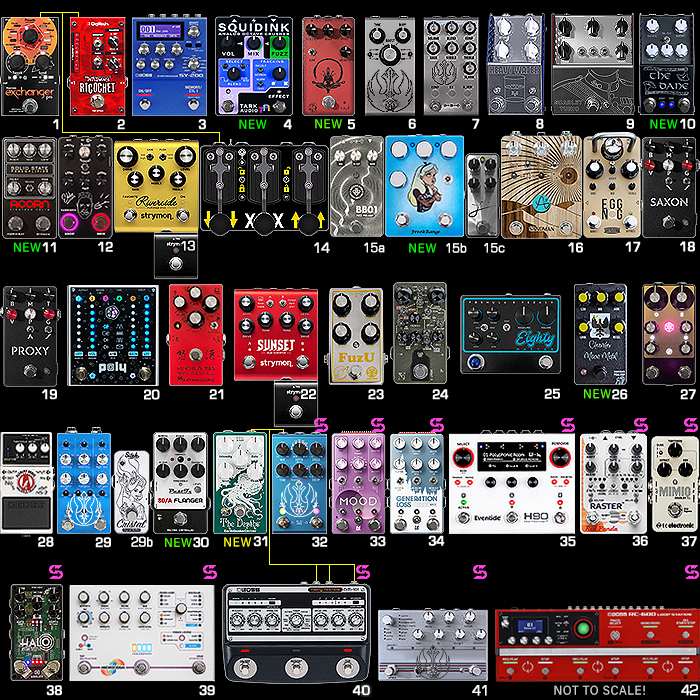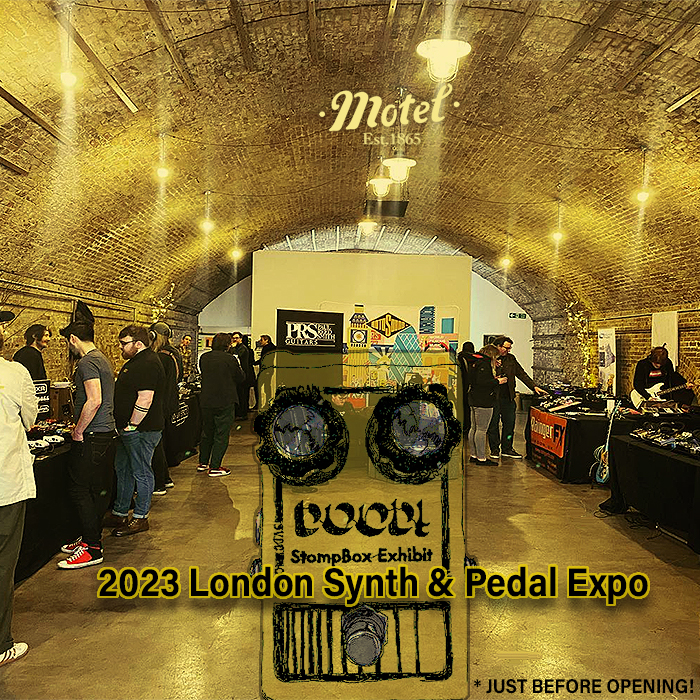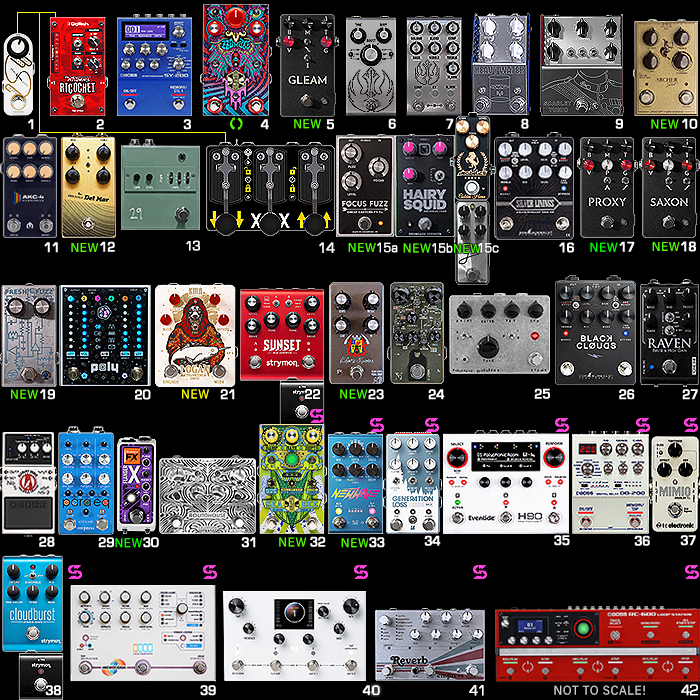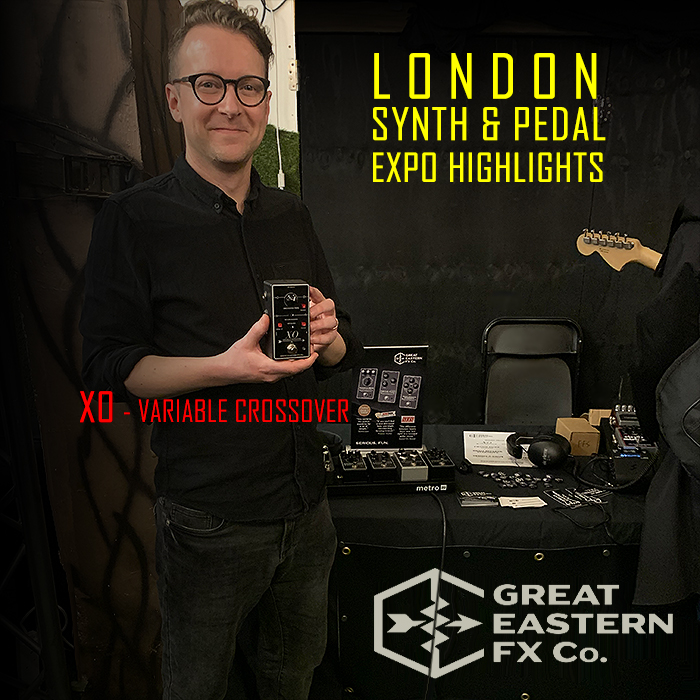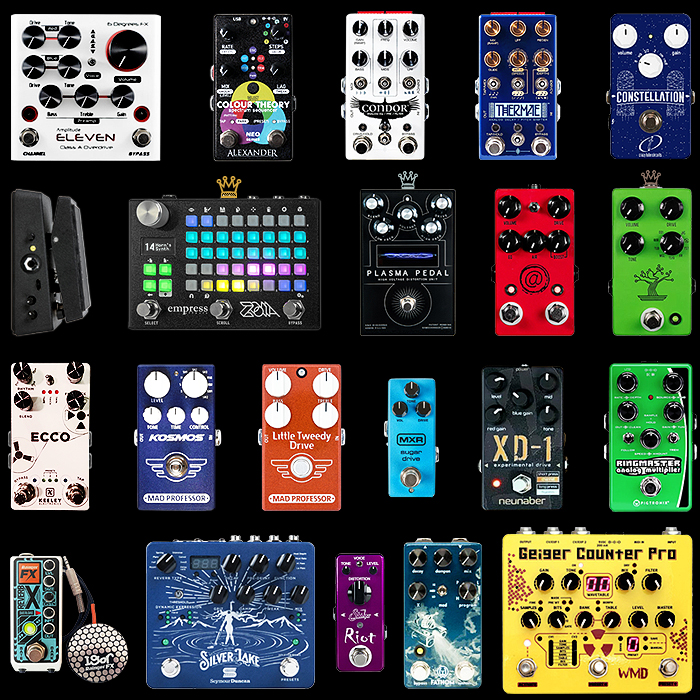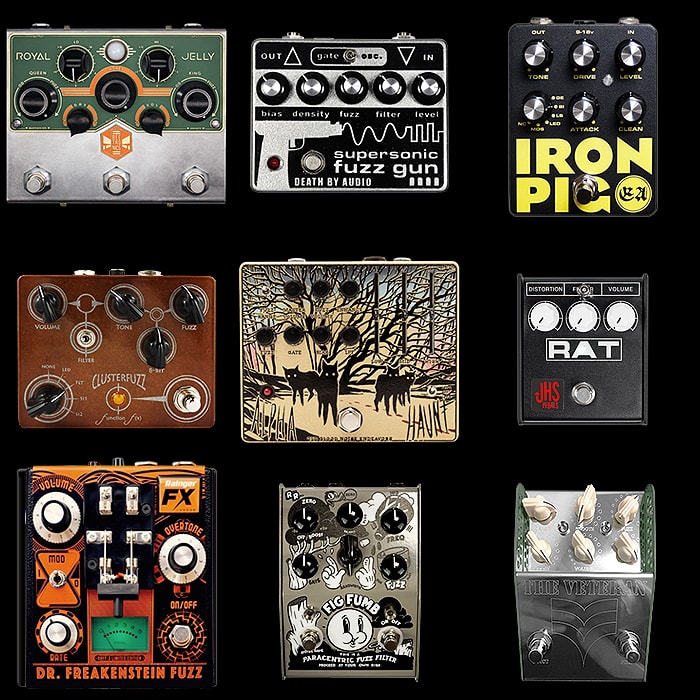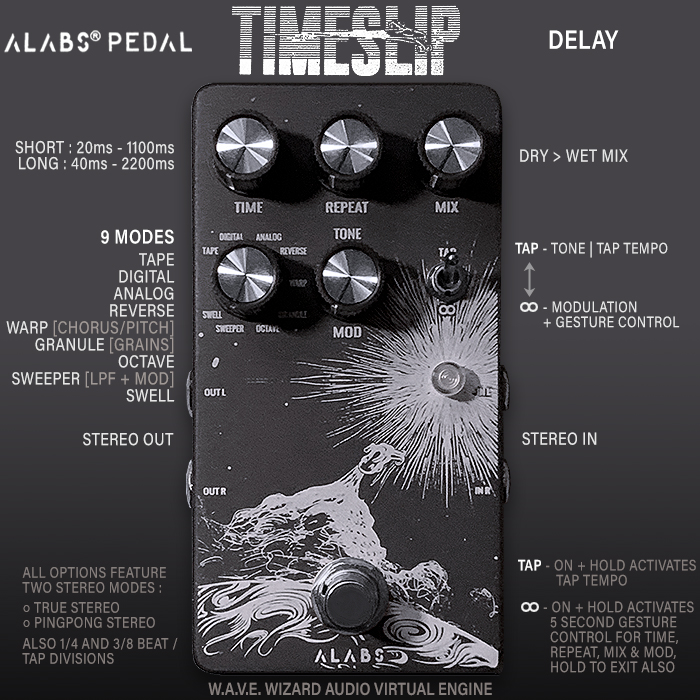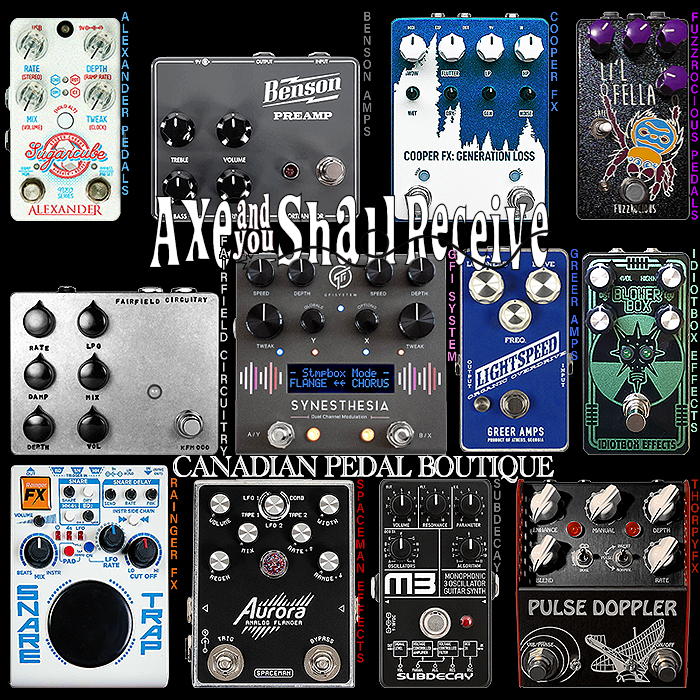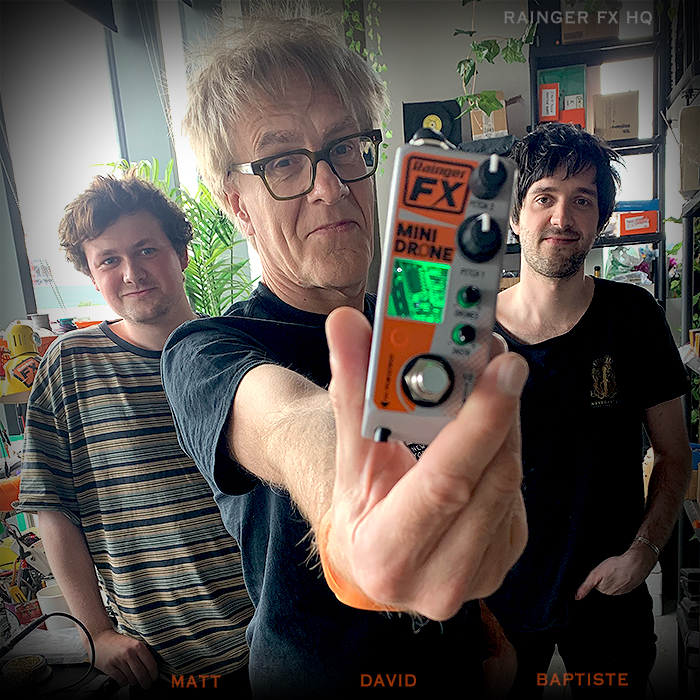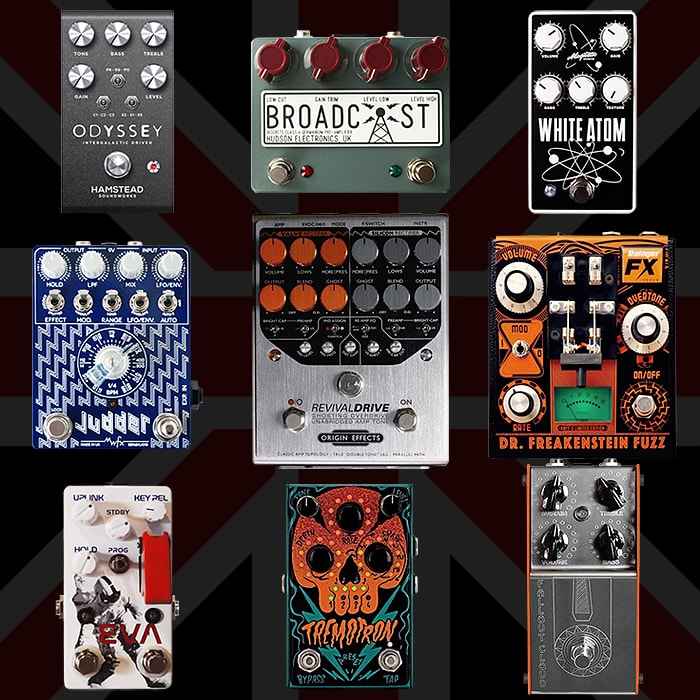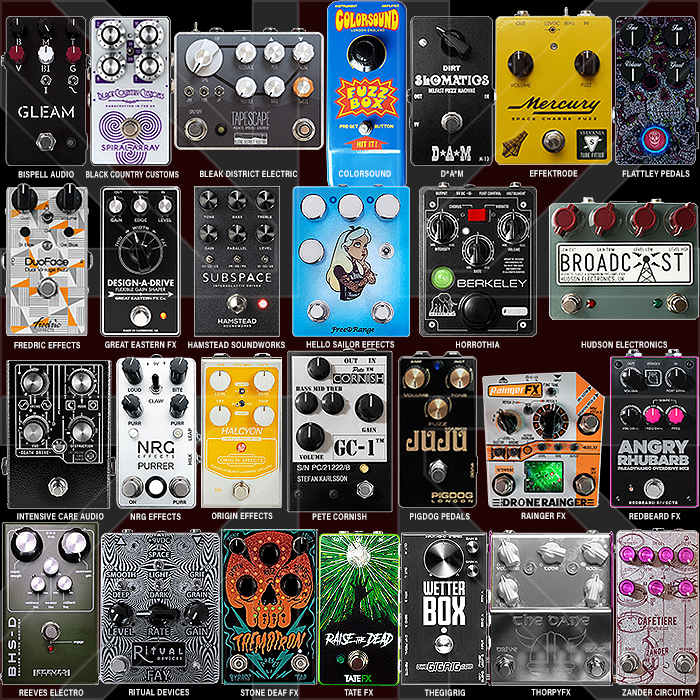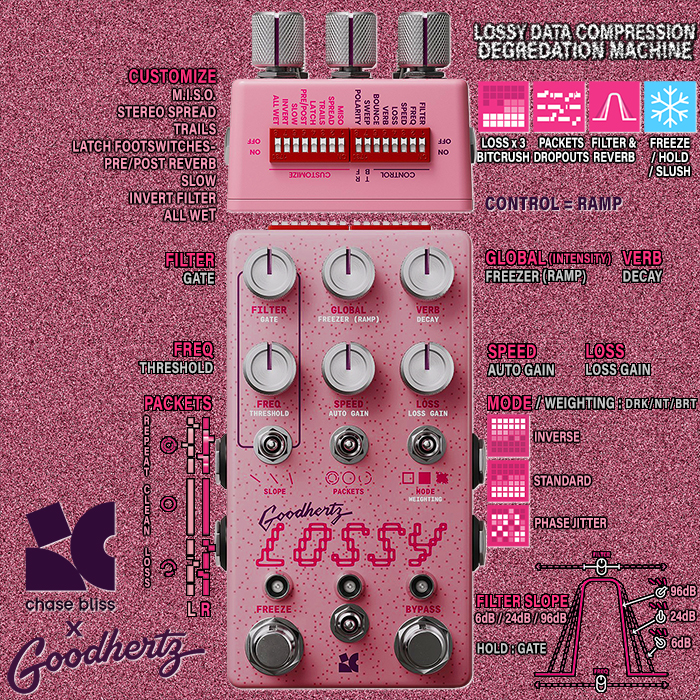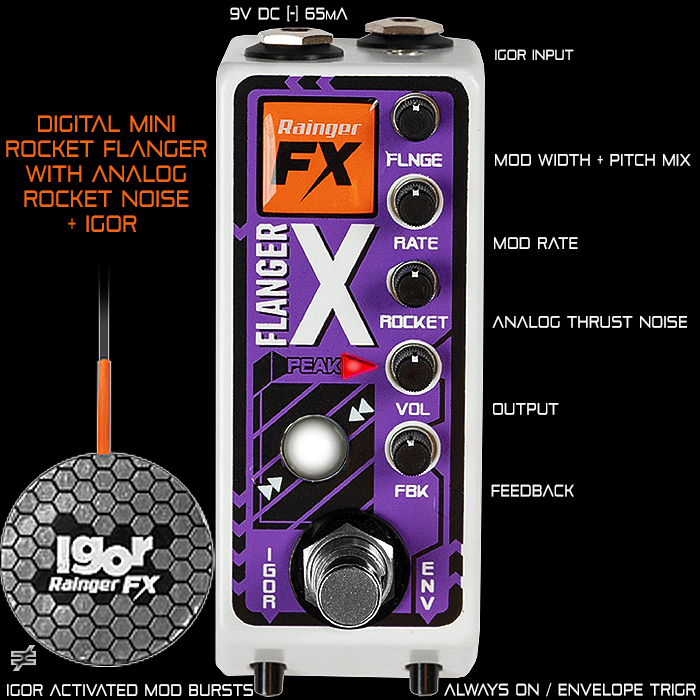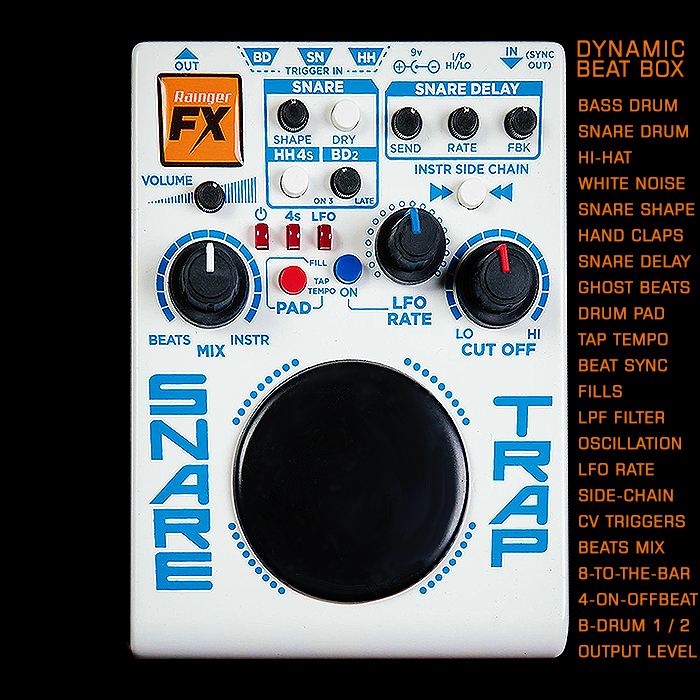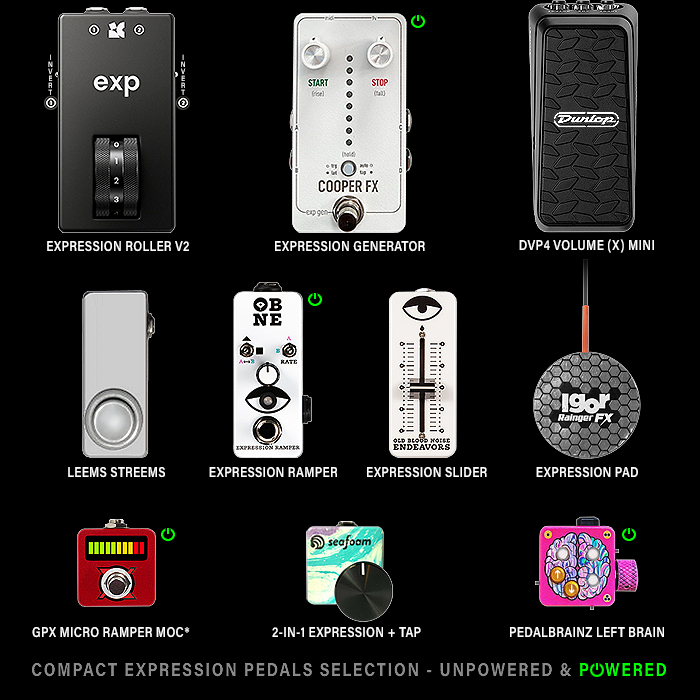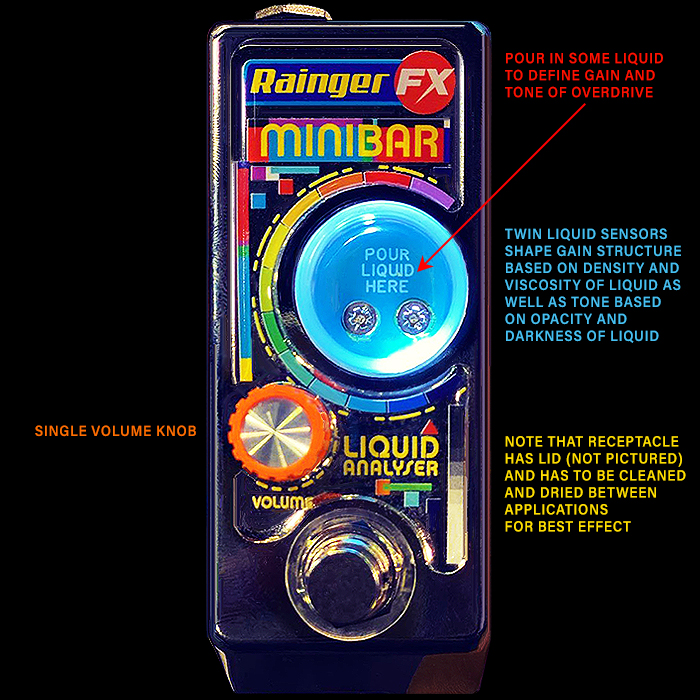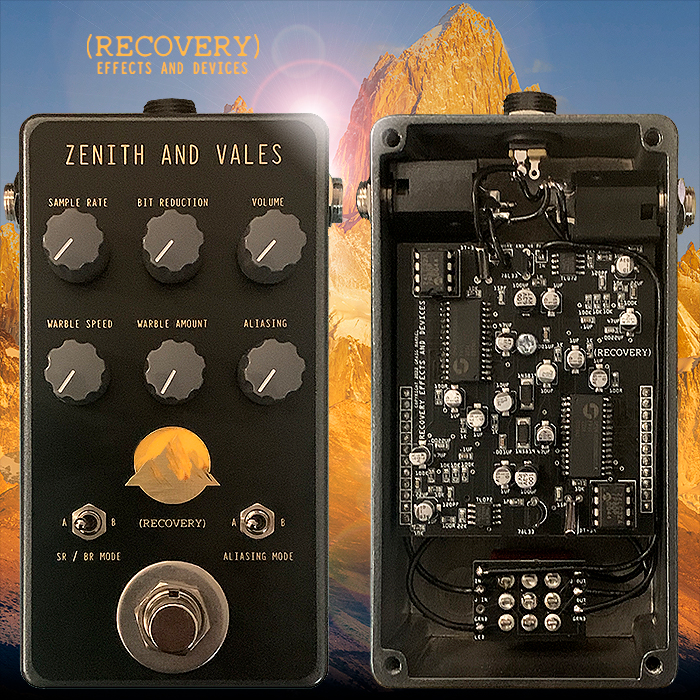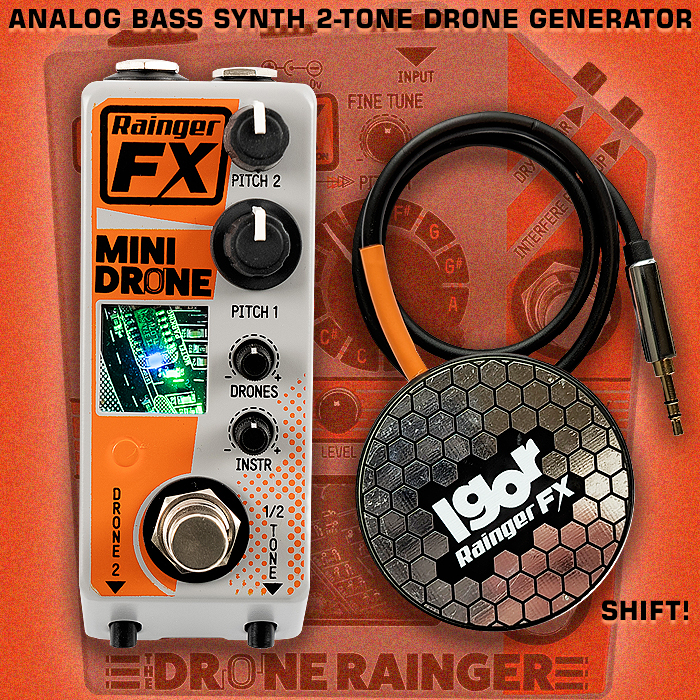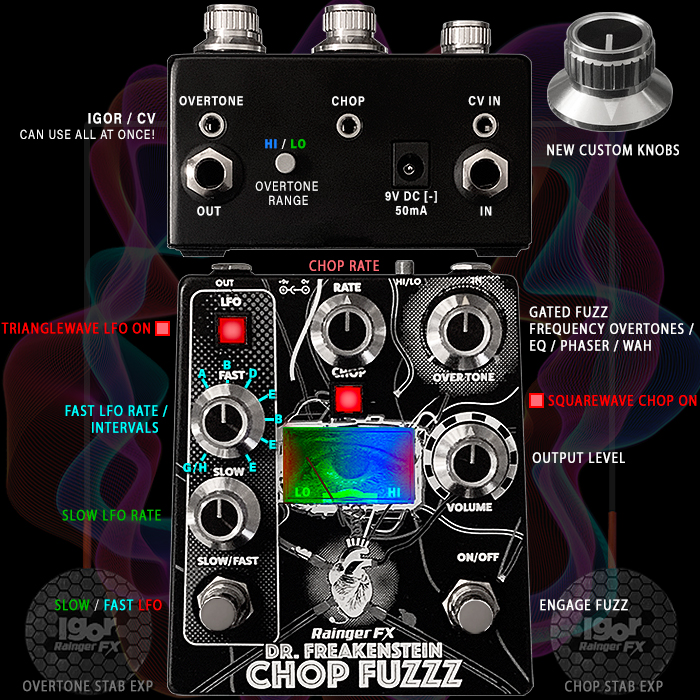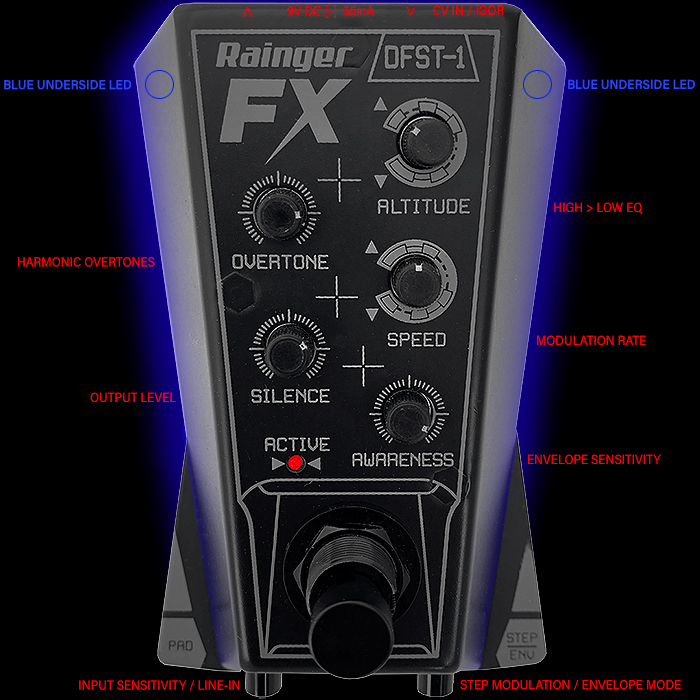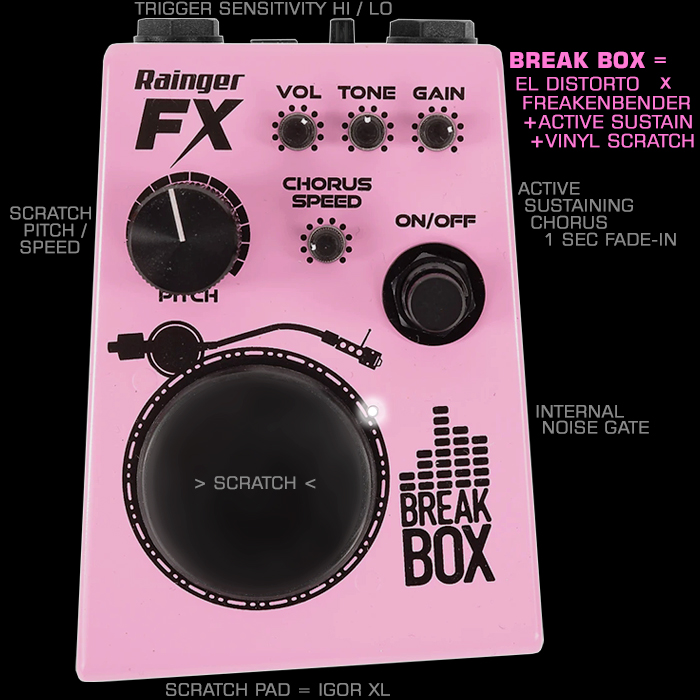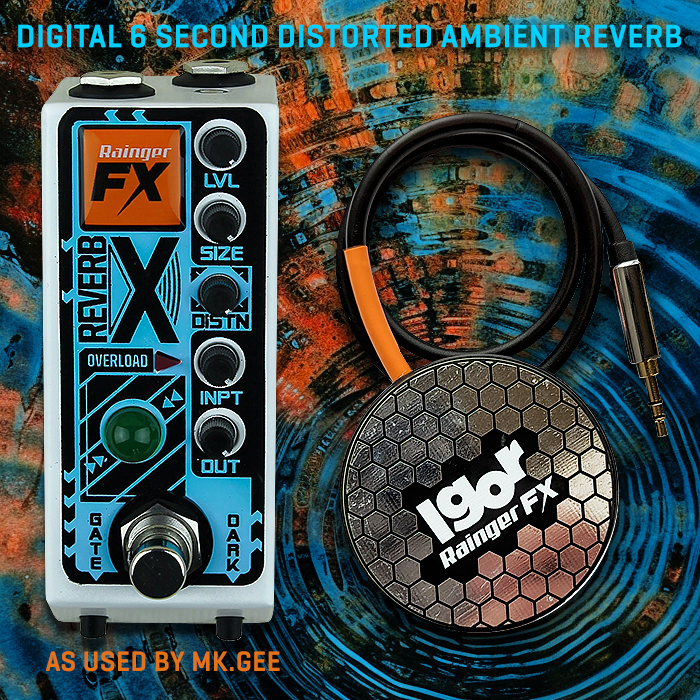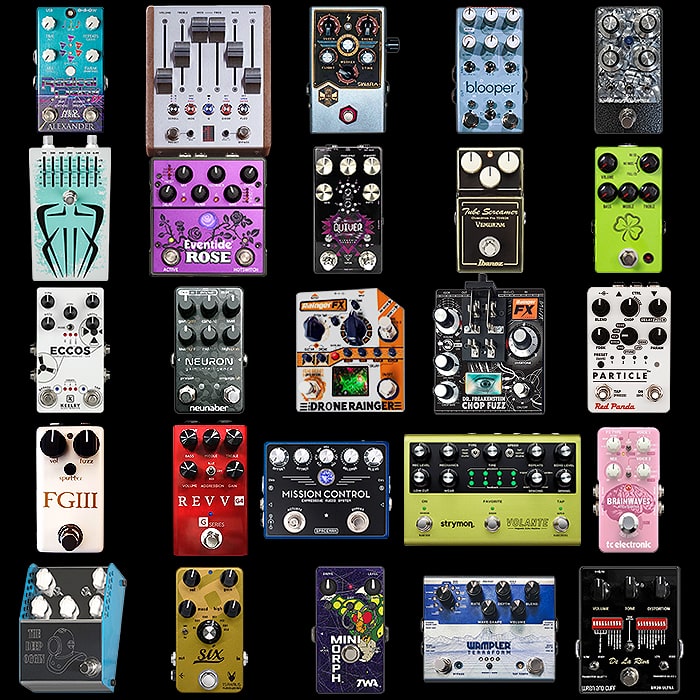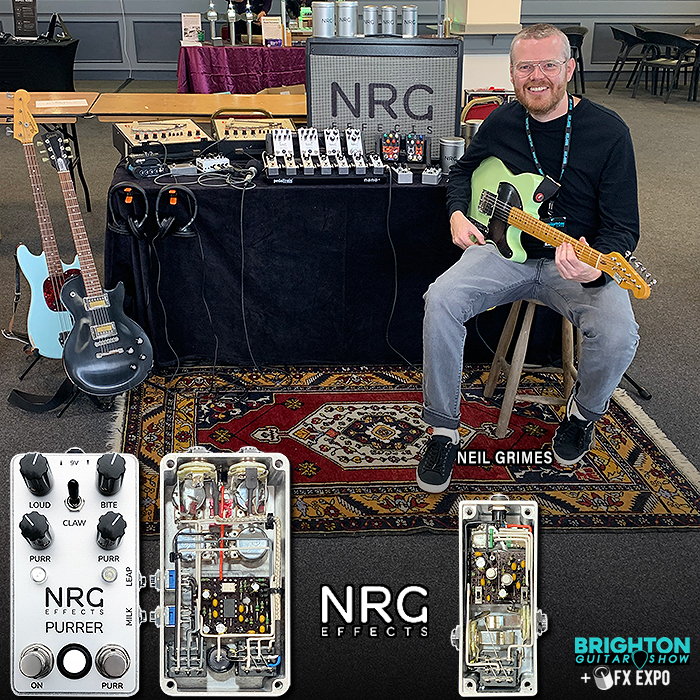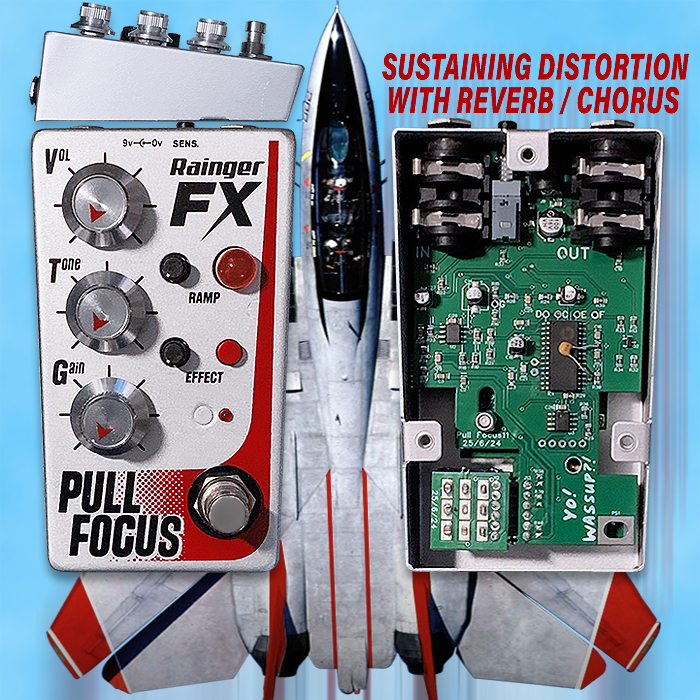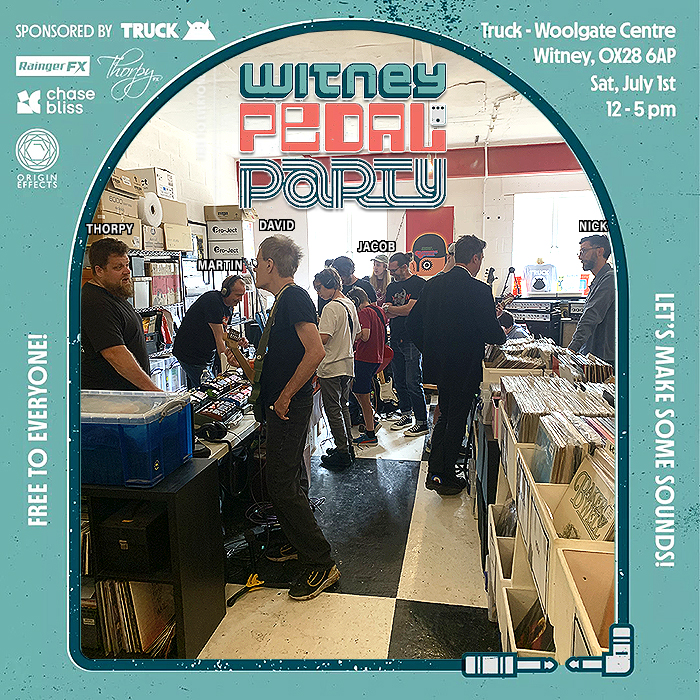Rainger FX's Break Box, Drone Rainger and Snare Trap are all brilliantly creative devices each on their own - while all three together deliver something extraordinary!
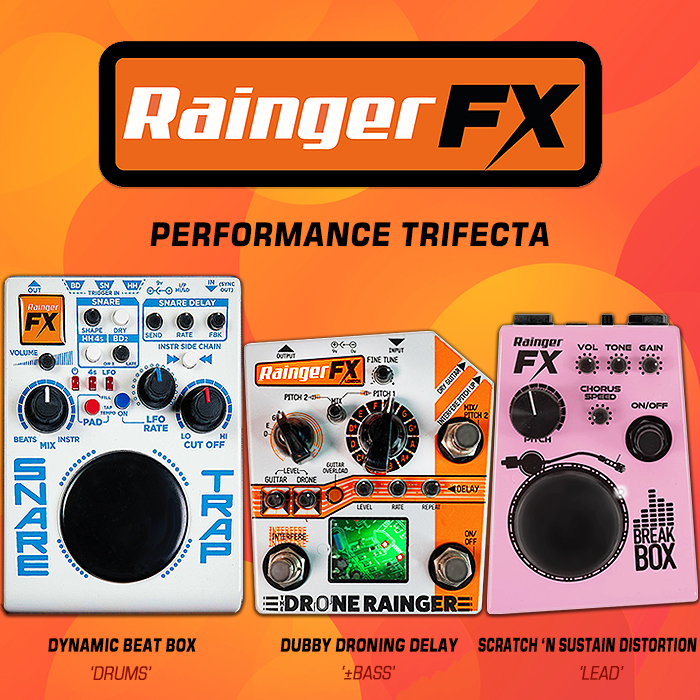
I’ve been meaning to do this article ever since the Witney Pedal Party event - where we lucky few who attended - were spellbound by some David Rainger magic - courtesy of a sort of combination performance and demo piece which mostly made use of the above 3 core pedals but in fact included every pedal in the range at some stage.
The Snare Trap and Drone Rainger have a real Dubby / SoundSystem dynamic to them - where in this context - this particular combination kind of renders as a sort of 3-piece band in some ways. Obviously the Snare Trap is the Drums, the Drone Rainger is kind of a 2-Note Bass (Drones) - coming across a touch like a very simplified version of a Moog Taurus (in terms of the Dual Pitch Drone), and then the Break Box provides the Lead lines.
Up until that time (Witney), I had been very aware of the potency and prowess of the Break Box and Snare Trap, but not so much of the Drone Rainger. I think when the pedal came out I kind of dismissed it mentally as just being a quirky pitch-shifting kind of experimental delay but limited by its Mono output. Obviously the last 1/3 of my chain consists of stereo devices - and I do indeed have a massive preference for stereo delays, reverbs and rotary pedals in particular for that segment - meaning that it’s impossible to accommodate the Drone Range in the most appropriate / positionally correct part of the chain. I actually had similar concerns for the Snare Trap - as that really sits best at the end of the chain - which can never work for my rig in that way - as that is Mono output also!
Yet I’m so impressed with what David played and how! - that I’ve determined that those two that I’ve yet to acquire (Drone Rainger + Snare Trap) are actually essential for the reference collection - and I then just need to adapt the board a touch to accommodate them (foregoing some of the usual stereo options) at that time. These are such brilliant performance devices and there’s nothing else out there really that does these sorts of things quite in this way - the sum of their outputs just makes for a really brilliant improvisational soundstage.
What the Witney performance really underlined is that David needs to record more performance videos - as he conceived all his pedals in very specific ways, and he’s one of the very few, typically by far the best ambassador for his own pedals - that is fully capable of doing all the pedals full justice - and be able to properly expose you to their full potential.
Back when the Drone Rainger originally came out I alas somehow overlooked SpiralCaster Cohen Hartman’s demo - which I feel is the definitive one for that pedal to date. Cohen also pretty much does the definitive one for the Snare Drum. While I’m not sure there is properly a definitive one for the Break Box released yet - each of those that exist don’t really do full justice to the Scratch element - in fact most just touch on that very briefly, kind of as an afterthought, and don’t incorporate it properly into an actually whole musical piece. The MAS Distro demo is the one that comes the closest to achieving that.
I’ve long been saying that the Break Box should be able to fairly easily replicate some of the Portishead stuff - as that includes a similar sort of eerie distortion with frequent vinyl scratching elements deployed throughout a number of songs. I’ve been looking forward to a Portishead Break Box demo all this while - which has yet to materialise.
David’s performance though - which you can see a significant portion of below - was quite superb and had all of us transfixed for a time - it sounded immense in the confines of the Truck Music Store’s second floor. David started off playing a sort of Dubby groove - I love how the beats clatter together when you introduce the delay elements, then he moves into sort of Spacer Rock territory, and ended up slightly Electo-Punk-ish - which the video does not quite run to.
David is for sure the best out there at demoing his pedals - while Cohen Hartman would seem to be a fairly ideal deputy. I do wonder why Cohen never did a demo for the Break Box - would be cool to complete that trifecta too.
In any case here is most of David’s Witney Pedal Party Performance, followed by the individual pedal details! :
Break Box Scratch 'N Sustain Distortion - £238
Controls - Volume, Tone, Gain, Scratch Pitch / Speed, Chorus Speed, On/Off Footswitch, Scratch Pad (Igor), Trigger Sensitivity : Hi / Lo (on top edge).
A really clever combination of the Distorto Distortion with David's Tone Bender tone-stack, a delayed-action sustaining chorus, and analog white-noise vinyl scratch effect.
It takes a certain knack and dexterity to get all 3 elements working fluidly together - in particular the Scratch effect - the timing of which needs some fine coordination. As mentioned - I'm still waiting for the definitive demo of this pedal that uses all 3 elements fully effectively in a balanced musical composition. Getting the most out of the Distortion and Sustaining Chorus is rather easier. For sure a really cool gritty style of distortion that works really well lower down the gain scale too. I'm still waiting for someone to do a cool Portishead take with this pedal - I suppose Matt Webster at Let's Play All would be a prime candidate for that or Harry from HarryandaGuitar - both tend to specialise somewhat in song reconstructions. Would be cool to get a flavour of Portishead some day in any case - something like 'Wandering Star' would surely be a prime candidate!
Drone Rainger Dubby Droning Delay - £299
Controls - PITCH } Pitch 2 : D / E / G / A, 2 <> 1 Pitch Mix, Pitch 1 : C / C# / D / D# / E / F / F# / G / G# / A / A# / B, Dry Guitar Switch, Interfere Pitch Up Switch, Mix / Pitch 2 Footswitch, LEVEL } Guitar, Drone, Guitar Overload Status LED, DELAY } Level, Rate, Repeat, FOOTSWITCHES } Interfere (Dive-bomb), On/Off.
There's a few things to get your head around with this pedal - which essentially consists of 2 distinct parts, a dual pitched analog Drone effect, and a Dubby Digital Delay. Where the granularity of controls allows you to separate those out or play them in unison / combinaition.
In the above intro I mentioned the Moog Tarus - which was/is a 13 note Bass Synthesizer Pedal Device - which allowed / allows keyboard players to simultaneously play a synthy bass with their feet - to accompany lead lines and pads played on the main synth/s. For the Drone Rainger you get the ability to alternate between two pitched analog drones - one set by a notched rotary dial, and the other by a more sweeping knob. A blend knob allows you to mix between the two drones, or else you can set up the Mix so that the Mix / Pitch 2 fooswitch simply flips over from one to the other.
Next you have a sort of Dubby delay (X-Echo) with the 3 typical controls - Level, Rate, and Repeat, and then a number of additional controls to further manipulate the output. Including Guitar and Drone Level knobs, Dry Guitar and Interfere Pitch Up push-buttons, and of course the 'Interfere' footswitch which usually delivers a dive-bomb effect - but which you can pitch up instead via the aforementioned button switch.
If you set all this up diligently you have a cool sort of 2-step droning bassline with further atmosphere and incidental effects - which you can play through really dynamically. In our 3-piece band scenario this sort of qualifies as the '±Bass' - while your composition would need to fit the obvious 2-step restriction. Would be interesting to see David evolve that concept further towards the Taurus Moog - by including perhaps a couple more pitch selectors and some clever foot-switching to bring the number of drone / bassline notes to 4!
Snare Trap Dynamic Beat Box - £299
Controls : SNARE } Shape | Dry | Hi-Hat 4s : On/Off, Bass Drum 2 : Late, SNARE DELAY } Send, Rate, Feedback, MAIN } Volume, Instrument Side Chain, Beats On LED, 4s LED, LFO LED, Mix : Beats > Instrument, Pad : Tap Tempo / Fill, LFO Rate Level | On/Off, Cut OFF (Low Pass Filter) : Lo > Hi, Drum Pad. You also have CV input triggers for each of Bass Drum, Snare Drum and Hi-Hat.
Similar to the Drone Rainger - there's a few different elements here that you need to get used to. Where in essence this is a 3-voice Beat Box / Drum Machine - with Bass / Kick Drum, Snare and Hi-Hat voicings that you can sync together via some smart tap tempo Igor input and then by manipulating the various controls.
The Snare Delay then adds another textural dimension - introducing some cool sort of syncopated drum clatter - which really fills out the Drum signal and makes the whole thing sound really sophisticated - beyond it's relatively simple underpinnings.
David often describes how this was really just supposed to be a sort of analog style Space Drum sort of kick-drum unit originally - before it grew and evolved in various directions. The style of drum beats very much reminds me of the 'Electro' era of drum sounds - therefore particularly good for Electro and Space Rock styles of music.
The Snare Drum is a rather large device, and as reported a little limited by its Mono output - but it's really smart and sounds fantastic - in fact it sounded amazing throughout David's Performance - really crisp and present. In fact the 3 devices together blended together and complemented each other really well.
For sure you need to adapt to each device to a degree - but there's plenty of versatility within that scope. You can do a really cool full-frequency set with just those 3 devices - producing a pretty rich and complex soundstage - particularly utilising the delay effects also to their full capabilities.
We definitely need to see some more David Rainger Performances - he should do a series of roadshows with that setup - it really sells home the true potential of those devices.


